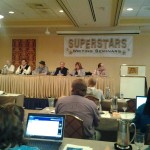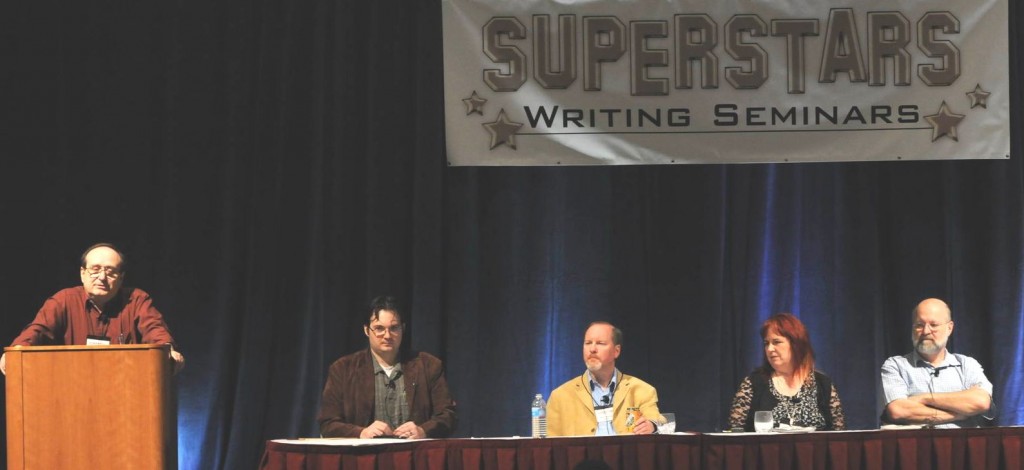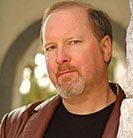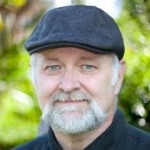My intention with this blog is to give you a healthy dose of despair and a stronger injection of hope.
I’m honestly surprised that this blog has turned into what it has. I’ve written and discarded a dozen drafts until settling on this topic–the topic I most hated to hear writers talk about when I started up writing again. In my heart I simply believed it wasn’t true. At least not for me. For the rest of you schmucks, sure. But not for me.
Turns out I was wrong.
I started my self-publishing experiment last August when I published The Demigod Proving. In November I followed up with Keep Mama Dead.
I haven’t sold a million copies.
Yet. I haven’t sold a million copies yet.
I’ve purposefully kept my marketing efforts to a minimum, although I have dabbled in what I would term marketing. That has netted me only about 2k sales and 12k give-aways. I’m more qualified to talk about what doesn’t work in self-publishing than what does.
But there is one thing I have learned, that I’m qualified to talk about, and that might be useful to you: you should give up your unreasonable hope, and maintain your reasonable hope.
I learned this over time, as I came to the conclusion that I am not an exception to the rule. There’s a very high chance (probably better than 99.9999%) that you aren’t, either.
I now suspect that the promise of quick and easy riches was what lured me back into writing. My day job wasn’t meeting my income desires, and so I thought, “I think I’ve got some skill with writing. Maybe I can hit it big. In fact, I bet I can.”
I haven’t told anyone that until now (so, naturally I put it on the Internet for all the world to read)–after all, they would scoff and spout some rot about those stories being the exception to the rule. They would try to distract me from my objective. I believed that I could be one of writers who had crazy huge success without much work.
Alas, it didn’t happen. At the same time, my day-job miraculously exceeded my income desires. The fire in my belly–the desire and urgency for quick and easy success–disappeared, leaving me wondering: why am I getting up early every morning to write? Why am I expending all manner of resources on this effort? It would be so much easier to use those resources for something more productive.
And yet, here I am, still writing. Still planning on putting out more books. And, in fact, trying to find ways to be more successful. I’m certain I’ll have to work harder. Perhaps I need to step up my marketing efforts. Maybe I need to hone my writing. There’s a chance I need to understand my audience better. It might be that the package of my book (style, cover, title, editing) needs more work.
How strange to find myself thinking like that when it’s safe to say I will never be the exception to that stupid rule. I’ve worked way too hard to ever legitimately be called an overnight success. For mercy’s sake, I’ve sacrificed for my art!
This has led me to a conclusion: I’m no longer in it for the quick and easy money. Which leads me to another realization: though success isn’t the primary goal, I still want to sell a lot of books. Which begets another conclusion: if a large number of book sales is something I’m going to continue to pursue, I’m going to have to manage my expectations about how easily that success might come. At the same time, I must maintain hope that I’ll succeed. Without hope, I have no reason to try. I may as well write and hide my work under a bushel.
Yet I have hope, and therefore I must continue to act. I must try different things, believing that if I change this or that-maybe this time I’ll have success.
So, the message?
Despair at ever being an overnight success, yet hope that your hard work will pay off.
Let your hope lead you to continue to develop your writing. If you self-publish, let your hope lead you to develop your marketing. If you fail at first and give up, it means you were in it for the money. There’s nothing wrong with that. But if you fail at first and find yourself willing to keep going, you must maintain hope that with persistent work, constant learning, and different approaches to the same problem, you’ll succeed.
You may not, though, and that’s why the money can never be the only reason you’re in this business.
 S. James Nelson recently won first place
S. James Nelson recently won first place in David Farland’s Nightingalewriting contest. If you enjoy action-oriented, deep-thinking fantasy, take a look at his book, The Demigod Proving. If you like strong characters, real-world fantasy, and hiking in national parks, take a look at his book Keep Mama Dead
in David Farland’s Nightingalewriting contest. If you enjoy action-oriented, deep-thinking fantasy, take a look at his book, The Demigod Proving. If you like strong characters, real-world fantasy, and hiking in national parks, take a look at his book Keep Mama Dead.






